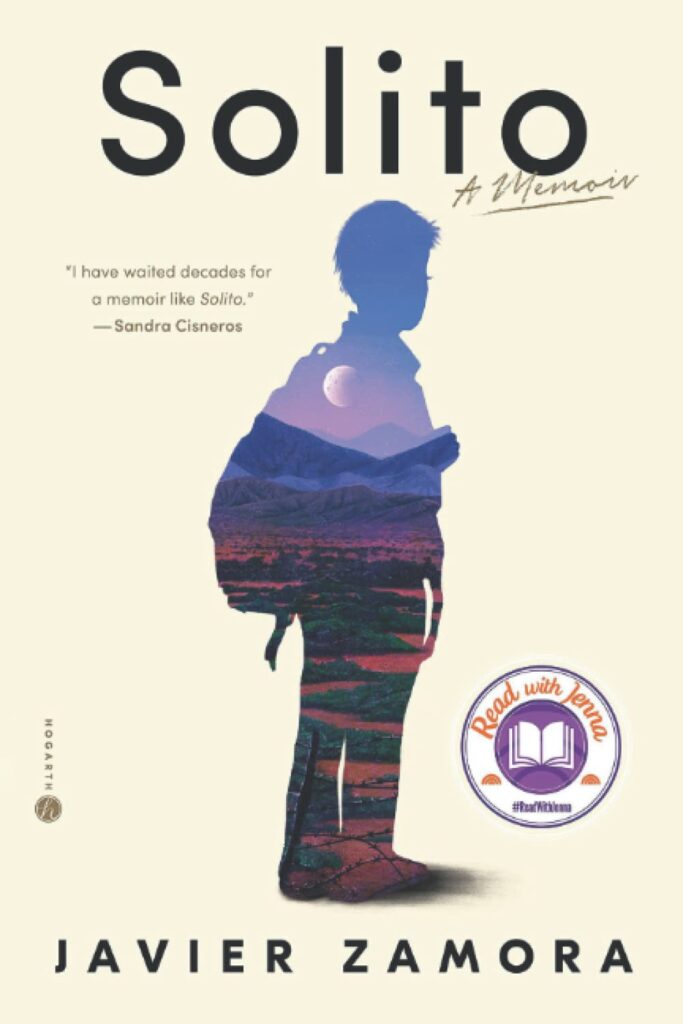
Imagine that as a nine-year-old boy, your grandparents place you into the care of a “coyote.” They pay him a substantial sum of money to guide you from your village in El Salvador to your parents, who are living over three thousand miles away in the United States. You find yourself embarking on a journey filled with uncertainty and fear as you leave behind the familiar sights, sounds, and smells of your grandparents’ home and your tiny village, which was the only place you ever knew. The coyote soon abandons you—you are solito—on your own—and only nine years old! Your only recourse is to march onward and depend on the goodwill of other migrants and generous people with whom you cross paths as you make your way on a nine-week harrowing trek from El Salvador through Guatemala and Mexico, to “la USA.”
Javier Zamora’s journey is sometimes filled with fear and dread as he avoids and evades patrols, dangerous wildlife, and those who would cause him harm. At other times, there are tender moments when kind and compassionate individuals extend their help in the form of food, shelter, advice, and accompaniment.
Solito: A Memoir is Zamora’s firsthand retelling of the events, experiences, and people he encountered during that amazing trip. It was not easy to muster up the courage to write the memoir of that two-month long march in later life. Once reunited, he and his parents barely spoke of it. He says he was only able to do so with “massive help” from his therapist (381). The traumatic memory of it had been buried deep inside him for several years. But finally, in 2022, the account of his amazing adventure was published and soon became a New York Times bestseller.[i]
Solito is the story of an unbelievable expedition as seen through the eyes of a nine-year-old, filled with fascinating anecdotes, interesting chance encounters, and the adventures of a boy who is growing up fast, struggling to survive.
While the cause of Zamora’s parents’ flight to the United States some years earlier had its roots in the US-backed Salvadoran civil war, this is not a political book that demonizes anyone. Rather, we hear about the kindnesses of many people from different quarters, including that of border patrol agents who carried out their work humanely and empathetically.
I found this story personally fascinating because my family and I lived in Central America during a time when political violence and warring factions cast a shadow over everyday life. I will never forget when a Salvadoran Lutheran pastor colleague was tortured and assassinated by a military death squad. It was November 21, 1984. I remember the shock when I received a phone call indicating that Pastor Fernandez was gone. I wish the world would remember Rev. David Fernandez, a faithful shepherd of Iglesia Luterana El Divino Redentor in San Miguel, El Salvador, a martyr for Jesus Christ whose only crime was trying to find ways to help his neighbor. Reading this book stirs up some of those memories.
Moreover, having traveled by car some ten times between Guatemala and the midwestern United States, the scenes of the countryside, villages, cities, and chaotic border crossings are quite familiar to me. The reader might notice that this book is somewhat bilingual, interspersed with Spanish language phrases and expressions usually left untranslated. The linguistic subtleties between the Spanish of Mexico and that of Central America that the author injects is something that probably passes over many readers’ heads, even if they have a working knowledge of Spanish. To speak in the antiquated second-person singular form, called vos, used in Central America, would be a dead give away to anyone in Mexico that you are not Mexican, but no doubt an “illegal” crossing through Mexico on the way to the United States. So the little boy was warned continuously, “Do not talk!” “¡No hablas!” “¡No hablás, vos!” lest they be found out. While the debate over the arrival of millions of migrants in the United States often becomes vitriolic, Solito: A Memoir takes a step back to portray a very human story about very human people, whose motivations are not nefarious but rather who are seeking a better life for themselves and their children, often trying to make their escape from injustice, poverty, and violence. It is well-written and engaging—well worth the read for anyone interested in seeing migration from an unfamiliar perspective, through the naïve and innocent eyes of a nine-year-old boy.
[i]After migrating to the United States and being reunited with his parents, Javier Zamora went on to experience life in the United States, attending college, and establishing himself as a renowned author. He recently won a 2024 Whiting Fellowship. He was the 2022 LA Times-Christopher Isherwood Prize winner and is the recipient of a 2018–2019 Radcliffe Fellowship at Harvard University, along with other awards and recognitions (www.javierzamora.net).



Leave a Reply
You must be logged in to post a comment.